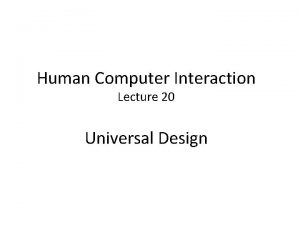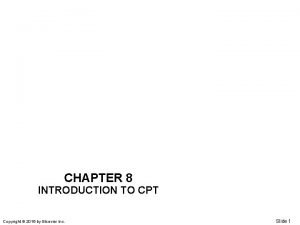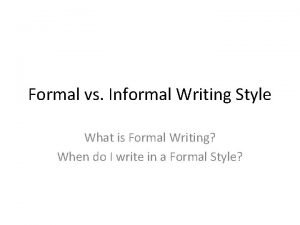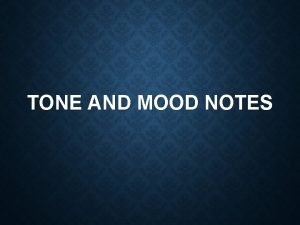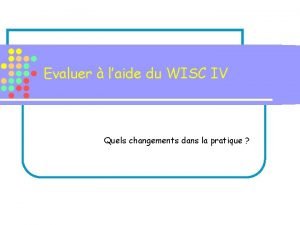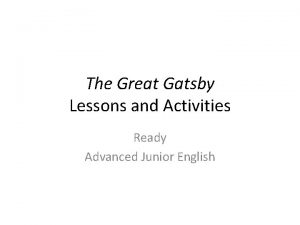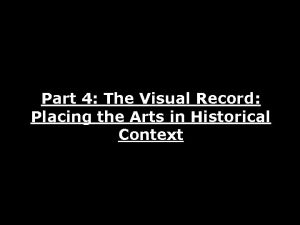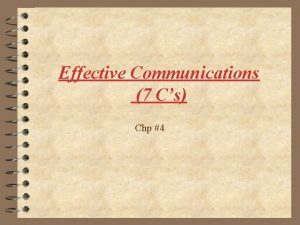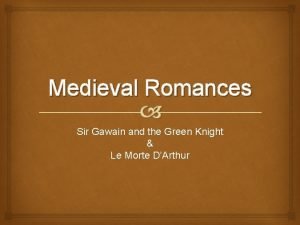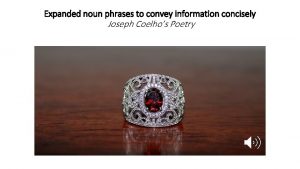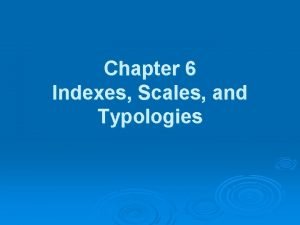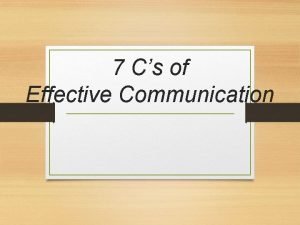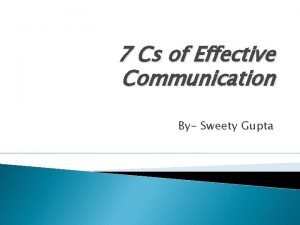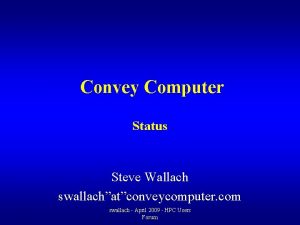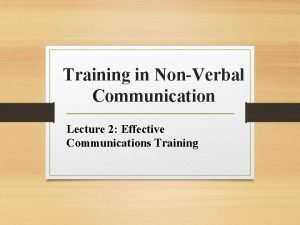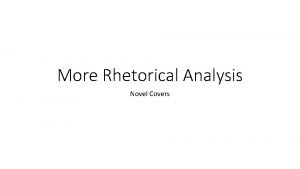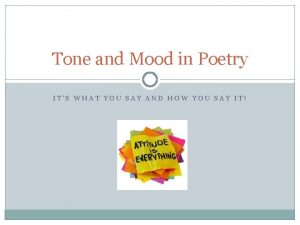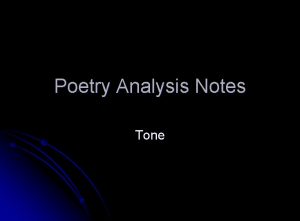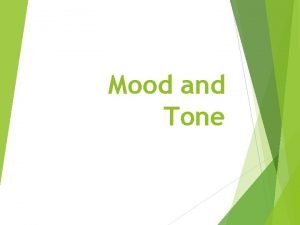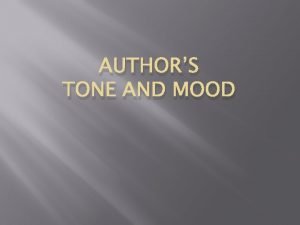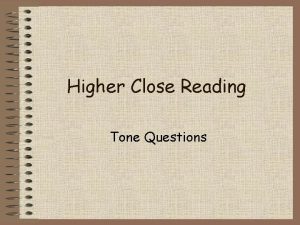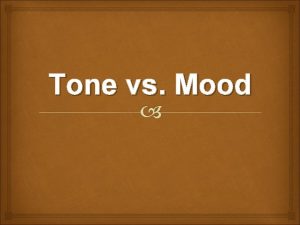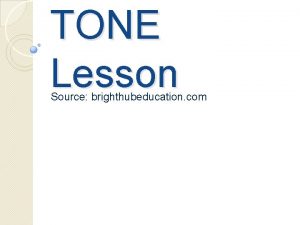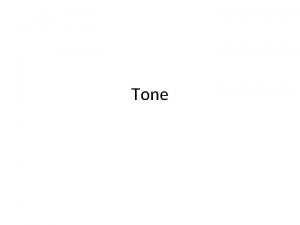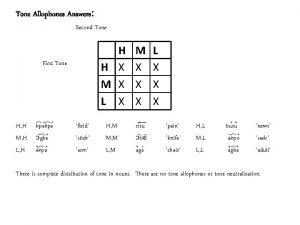POETRY NOTES TONE Used in poetry to convey




















- Slides: 20

POETRY NOTES

TONE ● Used in poetry to convey feeling and emotion, and set the mood for the work. This can be done through word choice, the grammatical arrangement of words (syntax), imagery, or details that are included or omitted. I met a traveler from an antique land. -from "Ozymandias” by Shelley This line immediately generates a story-telling atmosphere, just as it is with the phrase, "Once upon a time. " An audience is clearly implied.

CONNOTATION vs DENOTATION ● Connotation: an emotional or social association with a word, giving meaning beyond the literal definition ● Denotation: the specific, literal image, idea, concept, or object that a word or phrase refers to Word a star a family a dog Denotation ball of light/gas in the sky group of related individuals four legged mammal Connotation a wish love, trust, closeness friend, protector, pet

FIGURATIVE LANGUAGE

ALLITERATION ● Consonant sounds repeated at the beginnings of words If Peter Piper picked a peck of pickled peppers, how many pickled peppers did Peter Piper pick?

ALLUSION ● From the verb “allude” which means “to refer to” ● A reference to someone or something famous. A tunnel walled and overlaid With dazzling crystal: we had read Of rare Aladdin’s wondrous cave, And to our own his name we gave. -from “Snowbound” by John Greenleaf Whittier

ANALOGY ● Comparison of two or more unlike things in order to show a similarity in their characteristics ● Two main types: – Simile – Metaphor

SIMILE ● Comparison of two unlike things using “like” or “as” Friends are like chocolate cake, you can never have too many. Chocolate cake is like heaven always amazing you with each taste or feeling. Chocolate cake is like life with so many different pieces. Chocolate cake is like happiness, you can never get enough of it. - “Chocolate Cake” by Anonymous

METAPHOR ● Comparison of two unlike things where one word is used to designate the other (one is the other) A spider is a black dark midnight sky. Its web is a Ferris wheel. It has a fat moon body and legs of dangling string. Its eyes are like little match ends. - “Spider” by Anonymous

EXTENDED METAPHOR ● Continues for several lines or possibly the entire length of a work The fog comes on little cat feet. It sits looking over the harbor and city on silent haunches and then, moves on. - “Fog” by Carl Sandburg

ASSONANCE ● Repeated VOWEL sounds in a line (or lines) of a poem ● Often creates Near Rhyme ● A leal sailor even ● In a stormy sea ● Drinks deep God’s Name ● In ecstasy ● -”Peaceful Assonance” by Sri Chinmoy

ASSONANCE cont. Slow the low gradual moan came in the snowing. - From “Dauber: a poem” by John Masefield Shall ever medicine thee to that sweet sleep. - From Othello by William Shakespeare

CONSONANCE ● Similar to alliteration EXCEPT: – repeated consonant sounds can be anywhere in the words, not just at the beginning! And frightful a nightfall folded rueful a day …How a lush-kept plush-capped sloe Will, mouthed to flesh-burst, Gush!— - From “The Wreck of the Deutschland” by Gerald Manley Hopkins

IDIOM ● the literal meaning of the words is not the meaning of the expression. It means something other than what it actually says. Feeling under the weather you could have knocked me down with a feather. It was like a bolt out of the blue, when I met you. an English rose, in the flower of youth; … -from “My Sweet Idiom” by Paul Williams

IMAGERY ● Language that provides a sensory experience using sight, sound, smell, touch, taste Soft upon my eyelashes Turning my cheeks to pink Softly falling, falling Not a sound in the air Delicately designed in snow Fading away at my touch Leaving only a glistening drop And its memory - “Crystal Cascades” by Mary Fumento

HYPERBOLE ● An intentional exaggeration or overstatement, often used for emphasis Here once the embattled farmers stood And fired the shot heard round the world -from "The Concord Hymn" by Ralph Waldo Emerson LITOTE ● Intentional understatement, used for humor or irony (Example- naming a slow moving person “Speedy”)

ONOMATOPOEIA ● Words that imitate the sound that they are naming Tlot-tlot; tlot-tlot! Had they heard it? The horse-hoofs ringing clear; Tlot-tlot, tlot-tlot, in the distance? Were they deaf that they did not hear? - from “The Highwayman” by Alfred Noyes

OXYMORON ● Combines two usually contradictory terms in a compressed paradox, as in the word bittersweet or the phrase living death And faith unfaithful kept him falsely true… -from Idylls of the King by Alfred, Lord Tennyson I do here make humbly bold to present them with a short account of themselves. . . -from A Tale of a Tub by the poet and author Jonathan Swift Work entitled "She's All My Fancy Painted Him" by the poet and author Lewis Carroll

PERSONIFICATION ● A nonliving thing given human of life-like qualities Hey diddle, Diddle, The cat and the fiddle, The cow jumped over the moon; The little dog laughed To see such sport, And the dish ran away with the spoon. -from “The Cat & the Fiddle” by Mother Goose

SYMBOLISM ● The use of a word or object which represents a deeper meaning than the words themselves ● It can be a material object or a written sign used to represent something invisible. I shall be telling this with a sigh Somewhere ages and ages hence: Two roads diverged in a wood, and I— I took the one less traveled by, And that has made all the difference. -from “The Road Not Taken” by Robert Frost
 Synthetic sounds used to convey information
Synthetic sounds used to convey information Category i cpt codes have ____ digits
Category i cpt codes have ____ digits Examples of formal and informal writing
Examples of formal and informal writing Informal writing characteristics
Informal writing characteristics Rising intonation examples
Rising intonation examples Mood notes
Mood notes Wisc
Wisc Great gatsby lessons
Great gatsby lessons Narmer palette meaning
Narmer palette meaning Means convey the message by using fewest words
Means convey the message by using fewest words It uses a condensed form of english to convey program logic
It uses a condensed form of english to convey program logic Medieval romances convey a sense of the supernatural
Medieval romances convey a sense of the supernatural Convey noun
Convey noun Indexes scales and typologies
Indexes scales and typologies Completeness in communication
Completeness in communication Completeness in effective communication
Completeness in effective communication Paragraph from to kill a mockingbird
Paragraph from to kill a mockingbird Steve wallach
Steve wallach What emotion would a brisk erect walk convey
What emotion would a brisk erect walk convey What does it convey
What does it convey Tone and mood poetry
Tone and mood poetry
